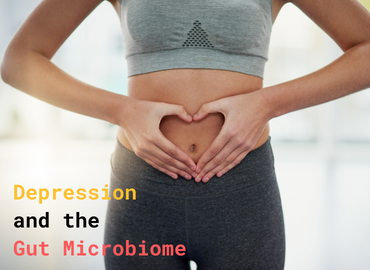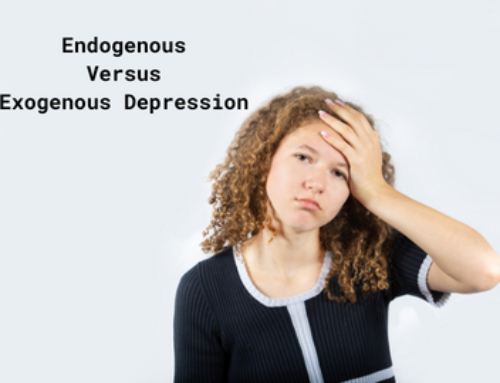Depression and the Gut Microbiome
We don’t usually think of our guts as things that talk—at least not coherently. They sort of hang out in the background, doing their work, going through their cycles, and gurgling sometimes. But a fascinating area of study is concerned with exploring possible links between the gut microbiome and mental health. It turns out that the gut microbiome and the brain talk with each other. They send directions, feedback, and status updates to detect problems and direct the body on what to do next.
First, what is the gut microbiome? A biome is the natural flora and/or fauna native to an area, so it makes sense that the gut microbiome is the billions and billions of bacteria and other microorganisms that live in the human digestive system. They not only regulate the absorption of nutrients and help separate nutrients from waste, but also play a major role with the immune system. The immune system maintains a fragile balance between the messages it receives and the actions it is directed to take. The immune system is a wondrous thing, working hard to protect us from disease every day, but when the composition and transportation of messages between the gut microbiome and the brain are faulty, the immune system can start to fight the body itself. All of this upset can result in chemical imbalances in the brain, affecting one’s mental state and quality of life.
According to current research, depressive symptoms affect about 22 million people in the United States in 2022, and each has a digestive system of their own. We know that the gut bacteria communicate with the brain, so what happens with the messages when the digestive system is in a negative condition? What does the brain receive? What about a depressed brain, or a brain with OCD, BPD, and/or any other mental health condition? Then, what do those imbalances lead to?
Problems with the gut microbiome’s relationship with the brain can cause a multitude of issues such as these:
− Nutrient malabsorption, preventing people from getting the full benefits of their diet.
− Hydration issues that can cause pain and difficulty with muscle function.
− Miscommunication with the immune system, which can cause inflammation, pain, and cell death.
− Fatigue and malaise despite efforts to rest and gain energy.
− Difficulty obtaining an accurate diagnosis due to symptom overlap between other conditions.
− The overall negative effect on one’s mood and mental function from feeling uncomfortable.
The last issue should receive ample attention on its own. Chronic pain and discomfort should not be dismissed, and if more effort needs to be made to obtain a diagnosis and create a treatment plan that results at least in a reduction of pain, if not remission, we are willing to do all we can.
Much more study is needed, but this is such an interesting area of research and we’re keeping up to date on the information released by scientists. While the medical community works on it, keep abiding by current recommendations on eating a balanced diet as well as one is able. Before seeking help from specialists, always start by seeing your general physician. They are able to perform a thorough physical examination and make recommendations to specialists like dieticians.
One of the services we offer at is a metabolic workup. A metabolic workup gathers data from a small blood sample to give us an overall picture of your physical and mental health level upon meeting. Everyone is unique, and their metabolic pathways are influenced accordingly.
If you’ve got questions or want to schedule an appointment, contact us on our website or call (585) 442-6960 anytime.





